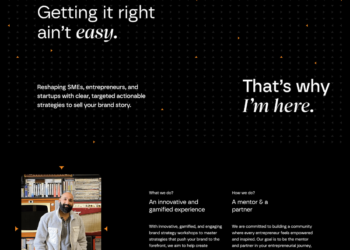
TL;DR
-
With the advent of Bitcoin Ordinals (aka Bitcoin NFTs), transaction volume on the network is skyrocketing and causing all sorts of congestion.
-
To solve this, the creators of the Bitcoin NFT marketplace ‘Bioniq,’ want to create a wallet that acts as the ‘DoorDash of Bitcoin NFTs.’.
-
Instead of orders for Bitcoin NFTs on the Bioniq marketplace being processed through the Bitcoin network, all payments will go through a third party blockchain (called ICP) which is way faster and cheaper to transact on. The NFT itself won’t move.
-
Instead, the ledger of ‘who owns what’ will be updated/tracked on ICP, until the user chooses to move the NFT into a Bitcoin wallet.
Full Story
It’s Sunday morning.
You’re hankering for a sandwich from Edith’s.
To save yourself the pain of a 30 minute wait in line, you order ahead through DoorDash.
(We’ve all done it).
This is a simple process for you, but in the background, there’s some complex stuff going on….
DoorDash takes your order total, sends it to a third party payment provider (probably Stripe), who then reaches out to your bank requesting the money.
Once that’s complete, DoorDash sends the order to Edith’s, where a weirdly enthusiastic dude named Larry starts making your sandwich.
We lay all of this out because, right now, the Bitcoin Network is operating like a sandwich shop in 2005 (pre-delivery apps).
And with the advent of Bitcoin Ordinals (aka Bitcoin NFTs), transaction volume on the network is skyrocketing and causing all sorts of congestion.
To solve this, the creators of the Bitcoin NFT marketplace ‘Bioniq,’ want to create a wallet that acts as the ‘DoorDash of Bitcoin NFTs.’
Here’s our understanding of how it works:
Instead of orders for Bitcoin NFTs on the Bioniq marketplace being processed through the Bitcoin network, all payments will go through a third party blockchain (called ICP) which is way faster and cheaper to transact on.
The NFT itself won’t move.
Instead, the ledger of ‘who owns what’ will be updated/tracked on ICP, until the user chooses to move the NFT into a Bitcoin wallet.
This way, users can trade Bitcoin NFTs as frequently as they please, without getting hit with lofty fees, and without clogging the Bitcoin network.
Smart!





















































































buy clomid without prescription can i purchase clomid without insurance order generic clomiphene without rx can i purchase generic clomiphene pills clomiphene bula profissional clomiphene chart how to get cheap clomiphene without prescription
More articles like this would remedy the blogosphere richer.
Greetings! Extremely productive suggestion within this article! It’s the petty changes which liking obtain the largest changes. Thanks a quantity quest of sharing!
azithromycin 500mg pills – floxin where to buy flagyl 400mg cheap
semaglutide order online – rybelsus pills generic periactin 4 mg
augmentin oral – https://atbioinfo.com/ ampicillin ca
purchase nexium online – https://anexamate.com/ buy esomeprazole 20mg online
order warfarin 5mg online – blood thinner purchase hyzaar for sale
cheap meloxicam – tenderness oral meloxicam
deltasone 5mg tablet – apreplson.com deltasone 5mg price
top ed drugs – buy ed pills sale generic ed drugs
buy amoxil pills for sale – where can i buy amoxicillin amoxil online
purchase forcan sale – buy generic diflucan for sale fluconazole 200mg canada
cost lexapro 20mg – https://escitapro.com/ cost lexapro 10mg
order cenforce 100mg generic – order cenforce 100mg generic cenforce 100mg pills
cialis onset – https://ciltadgn.com/ cialis side effect
canadian pharmacy online cialis – https://strongtadafl.com/# how much does cialis cost with insurance
ranitidine 150mg oral – online order ranitidine 150mg generic
viagra online order – strong vpls viagra buy dublin
I couldn’t weather commenting. Warmly written! https://gnolvade.com/
This website exceedingly has all of the bumf and facts I needed there this case and didn’t positive who to ask. prednisone for migraines
This is the tolerant of enter I recoup helpful. https://ursxdol.com/furosemide-diuretic/
Thanks on putting this up. It’s okay done. https://prohnrg.com/product/priligy-dapoxetine-pills/
This is a topic which is virtually to my fundamentals… Many thanks! Exactly where can I notice the acquaintance details an eye to questions? viagra homme prix